Five researchers from our PUCV Optoelectronics Laboratory presented their work at the SPIE Astronomical Telescopes + Instrumentation conference held in Yokohama, Japan.
Benjamín González, Nicolás Hernández, Bastián Romero, Jorge Tapia, and Camilo Weinberger presented their research on astronomical instrumentation at “SPIE Astronomical Telescopes + Instrumentation” conference that took place between June 16th and 21th in 2024.
The researchers from our laboratory already mentioned, primarily focus on adaptive optics, which aims to counteract the effects of the atmosphere on light transmission during cosmic observations, allowing for more precise vision and the capture of sharper, more detailed images.
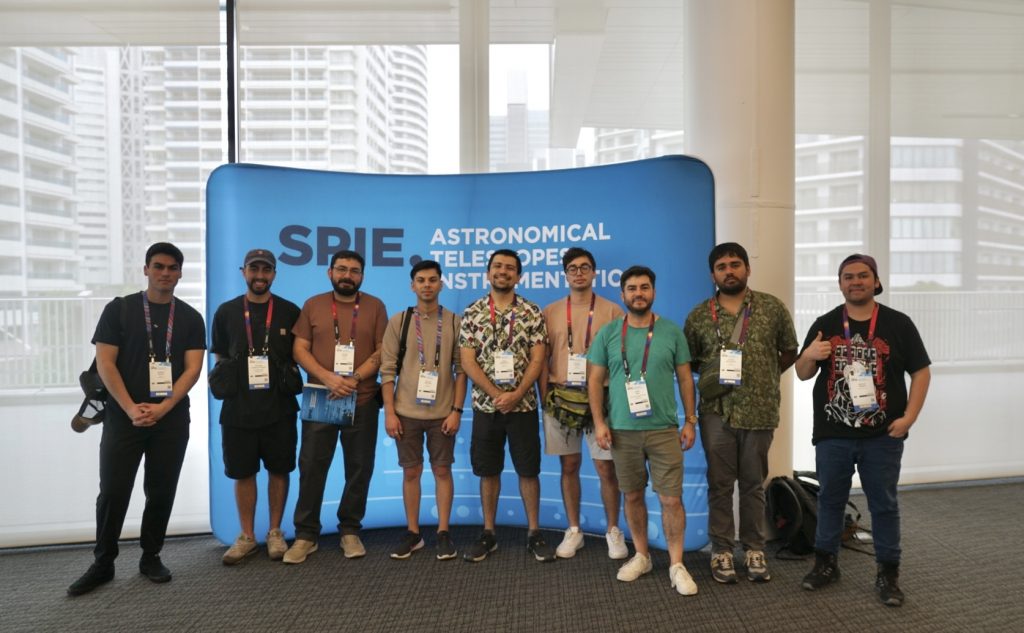
Camilo Weinberger, a PhD candidate in Electrical Engineering, presented his closed-loop research validating the use of neural networks in the modulation-free pyramid wavefront sensor.
The other experts participated in the Adaptive Optics Systems poster sessions, where they explained their advances in optical systems instrumentation and methodologies developed to improve adaptive optics, addressing questions from scientists worldwide.
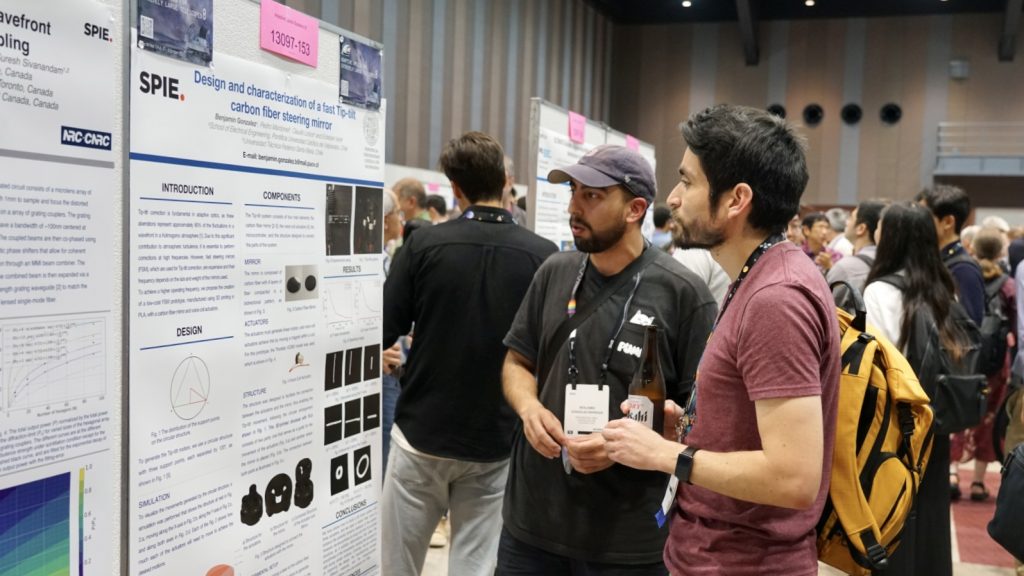
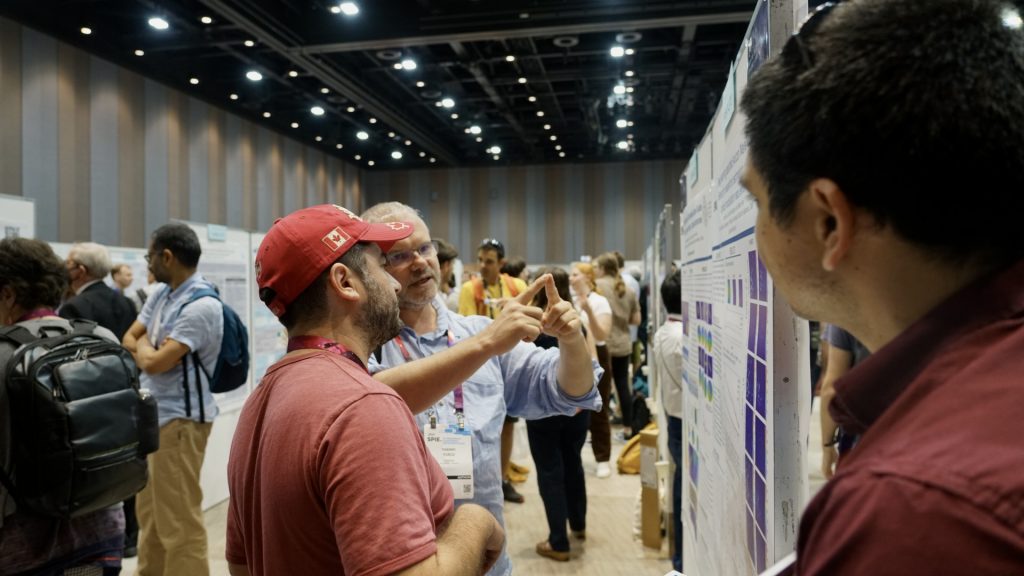
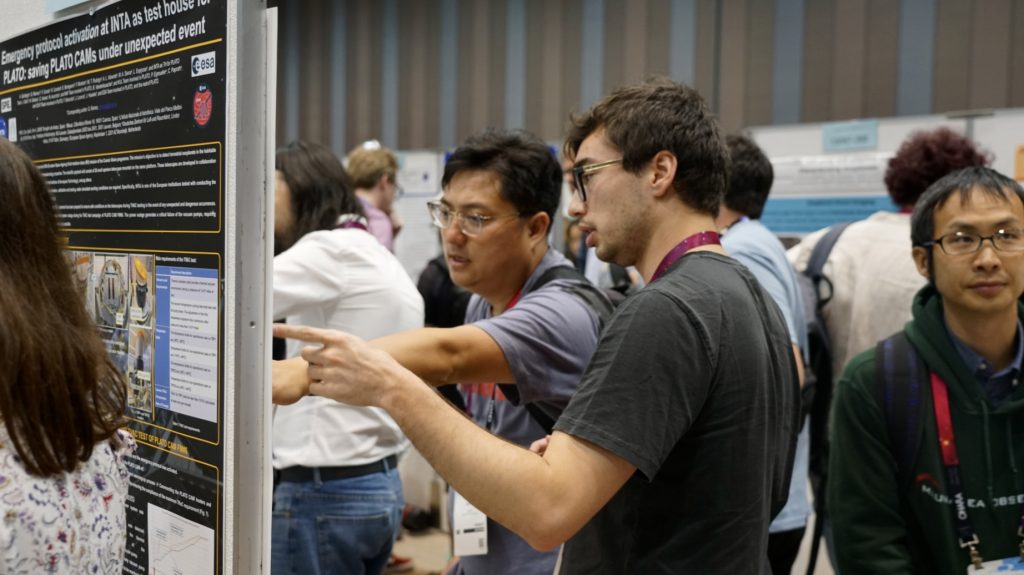
The international event, organized by the International Society for Optics and Photonics (SPIE), brings together scientists, engineers, and professionals in the fields of astronomy, telescopes, and all kinds of space instrumentation every two years, topics of special interest to the members of Optolab.
Additionally, four other undergraduate and graduate students from the laboratory also had the opportunity to attend the event, participating in conferences and poster sessions, and learning about the latest innovations in the field presented by leading experts.
Esteban Vera, professor at EIE and director of our laboratory, commented, “This conference is the most important in the world for astronomical instrumentation, so attending with a large group of students, postgraduates, postdocs, master’s students, and even undergraduates, is a tremendous opportunity to showcase the potential and human capital we have in Chile.”
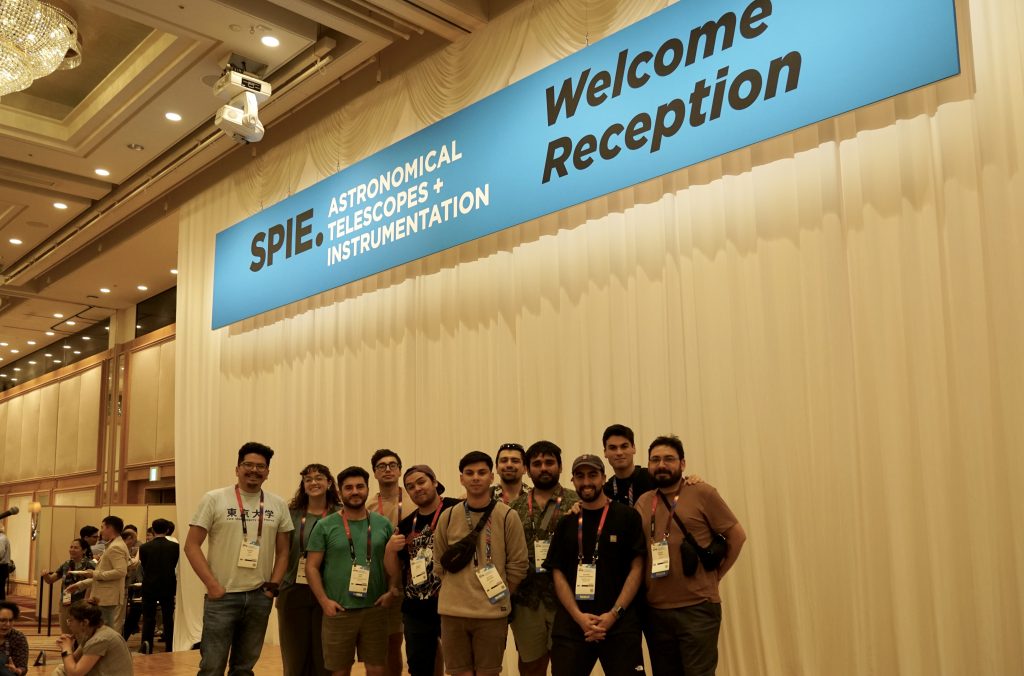
He also highlighted that the research presented at the conference “demonstrates that we are capable of developing technology for current astronomical projects and also for upcoming ones, such as the Extremely Large Telescopes (ELT),” said Dr. Vera.
It was a great opportunity for the Optolab researchers, as they learned about new approaches, enriched their knowledge, and connected with researchers from around the world, opening the possibility of developing new work and collaborations in the future.
